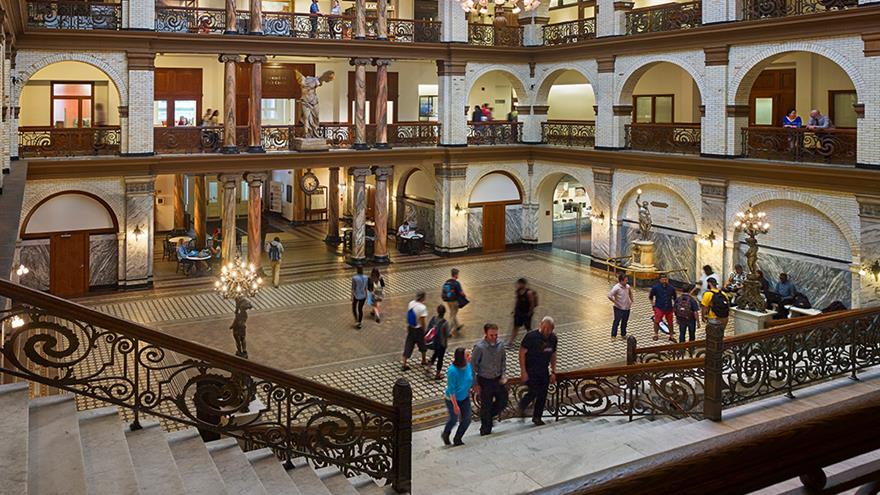Who You Gonna Call? Understanding the Drexel Police Department

The Drexel Police’s patrol area extends from 30th Street to 36th Street and from Chestnut Street to Spring Garden. This is roughly where the buildings of Drexel University were in 2007, when Drexel’s patrol boundaries where established through a memorandum of understanding with Philadelphia and the state of Pennsylvania.
“We’re almost a small borough within the city of Philadelphia,” said Eileen Behr, Drexel’s vice president of public safety. “The area that we cover is not large, but it’s a large population, when you think about all of the residence halls. The area around 30th Street Station is ours, and out into Powelton Village.”
The department serves those myriad people with a small but dedicated team. There are 38 sworn officers, including Behr, Director of Operations Joseph Spera, Minors Coordinator Stephen Guckin, and three detectives.
Additionally, the department employees 16 full-time dispatchers, five part-time dispatchers, a two-person security-specialist IT unit, three fire safety and emergency preparedness managers, and four administrative personnel. Drexel is the only university in the world with both a police department and communications center that are accredited by the Commission on Accreditation for Law Enforcement Agencies.
Allied Security officers, who stand out in their distinctive yellow windbreakers, assist the Drexel Police in patrolling the area. The 160 Allied officers are subcontracted to Drexel Police and work closely with them. The two teams have begun training together, to further cement that relationship.
The Drexel Police also has a tight working relationship with law enforcement in its neighboring areas, the 16th District, the University of Pennsylvania Police and the University City District Police.
“If we have a serious incident, the 16th will back us up. And if they have something, we’ll back them up,” Behr said. “We all monitor each other’s radios. So we all know what’s going on in each other’s districts.”
This cooperation between districts means that the Drexel Police’s work does not necessarily end when then boundary does.
“If it’s something where the student may need assistance, something a little beyond a simple police call, we’ll go,” said Thomas Cirone, community relations officer for the Drexel Police. “And that’s whether it’s right there or several blocks past our area.”
In many ways, the Drexel Police are just like any other district force in Philadelphia. If they make an arrest, they file their paperwork with the Philadelphia Police Department, since it all has to go to the same district attorney’s office. In an investigation, they partner with Philadelphia detectives.
“Sometimes we take the lead, sometimes they take the lead; often we work together on investigations,” said Behr. “Homicides, the Philadelphia Homicide Unit takes the lead on anything like that, regardless of where in the city you are.”
But the nature of being attached to a university does allow for a broader range of responses than other districts. The Drexel Police assist with medical calls, ambulance calls and fire calls. There’s an email address for issues that are not necessarily a police emergency, but are quality of life issues. There’s also a relationship with Student Affairs and Student Conduct, which can be the most effective weapon in the Drexel Police’s arsenal. If the call concerns something that isn’t illegal, but is disruptive, the Drexel Police can still act.
“If it’s borderline, we can refer them to Student Conduct,” Behr said. “Which the police cannot do. They don’t have that option.”
“One loud party isn’t going to get you in trouble,” Cirone said. “But I’ve heard that some people would rather have a ticket for making too much noise, something that they can just pay, than face Student Conduct.”
In This Article
Drexel News is produced by
University Marketing and Communications.

